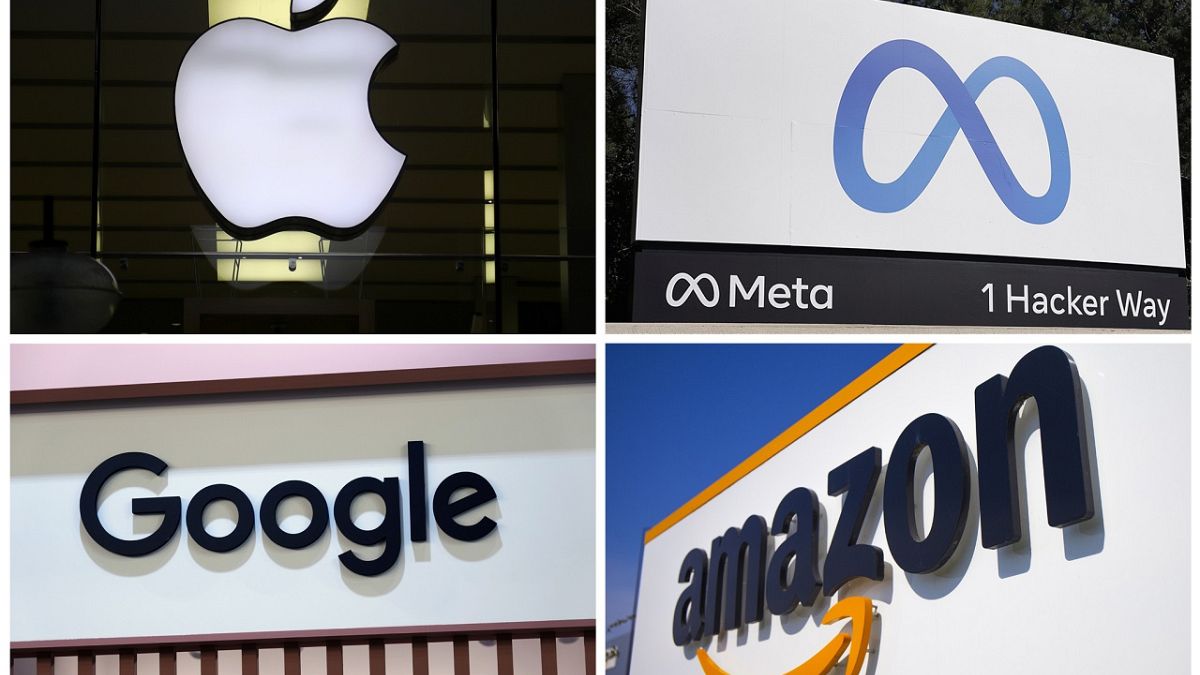The US is pitching the creation of a new advisory body for the Digital Markets Act (DMA) involving those companies subject to enforcement of the regulation a voice, in the context of negotiations over an EU-US trade deal, according to three sources familiar with the matter.
The EU will never accept the idea however according to two of the sources.
On Saturday, Trump posted a new set of letters to his social media platform Truth Social, declaring 30% tariffs on the EU and Mexico starting 1 August, a move that could cause massive upheaval between the United States and two of its biggest trade partners.
European Commission President Ursula von der Leyen quickly responded by noting the bloc’s “commitment to dialogue, stability, and a constructive transatlantic partnership.”
On Sunday, she emphasised that reaching a negotiated solution remains the priority, but that the EU is ready to respond with countermeasures.
The DMA regulates the largest online platforms with a view to protecting the rights of consumers and curbing any abusive behaviour by dominant tech players.
Under the rules, companies face fines of up to 10% of their global annual turnover for non-compliance.
Peter Navarro, a senior Trump advisor, has openly accused the bloc of waging “lawfare” against US Big Tech through the DMA and its sister Digital Services Act (DSA) regulation. In response, the EU has said it will “not make any concessions on its digital and technology rules” as part of any trade negotiations with the US.
The DMA already has an advisory board, which plays a consultative and strategic role in its implementation, supporting the Commission in oversight and enforcement.
The board is made up of independent experts and representatives from relevant national authorities and regulatory bodies, however, and is not supposed to be a body of representatives drawn from the enforced entities.
The sources did not expand on what form the advisory body touted by the US would take, beyond giving influence over the enforcement methods.
“The fact that the US proposed setting up an advisory board for the DMA, where those who might be affected would actually sit, that certainly won’t happen, and there will be no exceptions for US companies under the DMA,” one source said.
The Commission has repeatedly said that DMA probes are conducted strictly according to the regulation, which does not discriminate against companies on the basis of country of origin. But the fact that most of those under its scope are US tech giants means that the decisions are now seen through the lens of the brewing trade war.
On both sides of the Atlantic, EU digital legislation has become a red line in the negotiations over tariffs: the US considers the DMA and DSA – which covers illegal content online – as non-tariff barriers to their trade with the EU, while the EU refuses to amend these regulations, which were adopted in 2022.
Sovereignty
Commission Vice-President Teresa Ribera told Euronews on 27 June that it is impossible to for the EU to backtrack on its digital rules.
“We are going to defend our sovereignty. We will defend the way we implement our rules, we will defend a well functioning market and we will not allow anyone to tell us what to do,” she said.
Without changing the rules, the Commission could nonetheless finesse implementation of the DMA, according to Christophe Carugati, a Brussels-based tech consultant. Investigations and fines could become the exception in the DMA enforcement.
“To calm the US, the idea could be to settle disputes formally or informally through dialogue. That will implicitly ‘pause’ the investigations,” he told Euronews.
Non-compliance investigations launched over the past year under the DMA have resulted in relatively low fines compared to those imposed on Big Tech under the Commission’s previous mandate. Apple has received a €500 million penalty and Meta was fined €200 million, the former for preventing developers from steering consumers to alternative offers, the latter for its “Pay or Consent” advertising model.
In April, EU officials said that the lower fines reflected the short duration of the violations since the DMA implementation started in 2023 but also the Commission’s current focus on achieving compliance rather than punishing breaches.
Simplification
US tech giants could also seek to benefit from the Commission’s simplification agenda to secure some relief from regulatory enforcement. In May, Amazon, IBM, Google, Meta, Microsoft and OpenAI called on the Commission to keep its upcoming Code of Practice on General-Purpose AI (GPAI) “as simple as possible”, as reported.
EU Tech Commissioner Henna Virkkunen is currently carrying out a digital fitness check, which will result in an “omnibus” simplification package to be presented in December.
She aims to identify reporting obligations in existing digital legislation that can be cut to ease pressure on enterprises, particularly SMEs.
The question remains whether that simplification package will also cover the DMA, DSA and the AI Act.
Virkkunen has always said that despite facing criticism from former Trump advisor and X-owner Elon Musk, the laws are fair and equitable.
“Our rules are very fair, because they are the same rules for everybody who is operating and doing business in the European Union. So, we have the same rules for European companies, American companies, and Chinese companies,” Virkkunen told Euronews in April.

